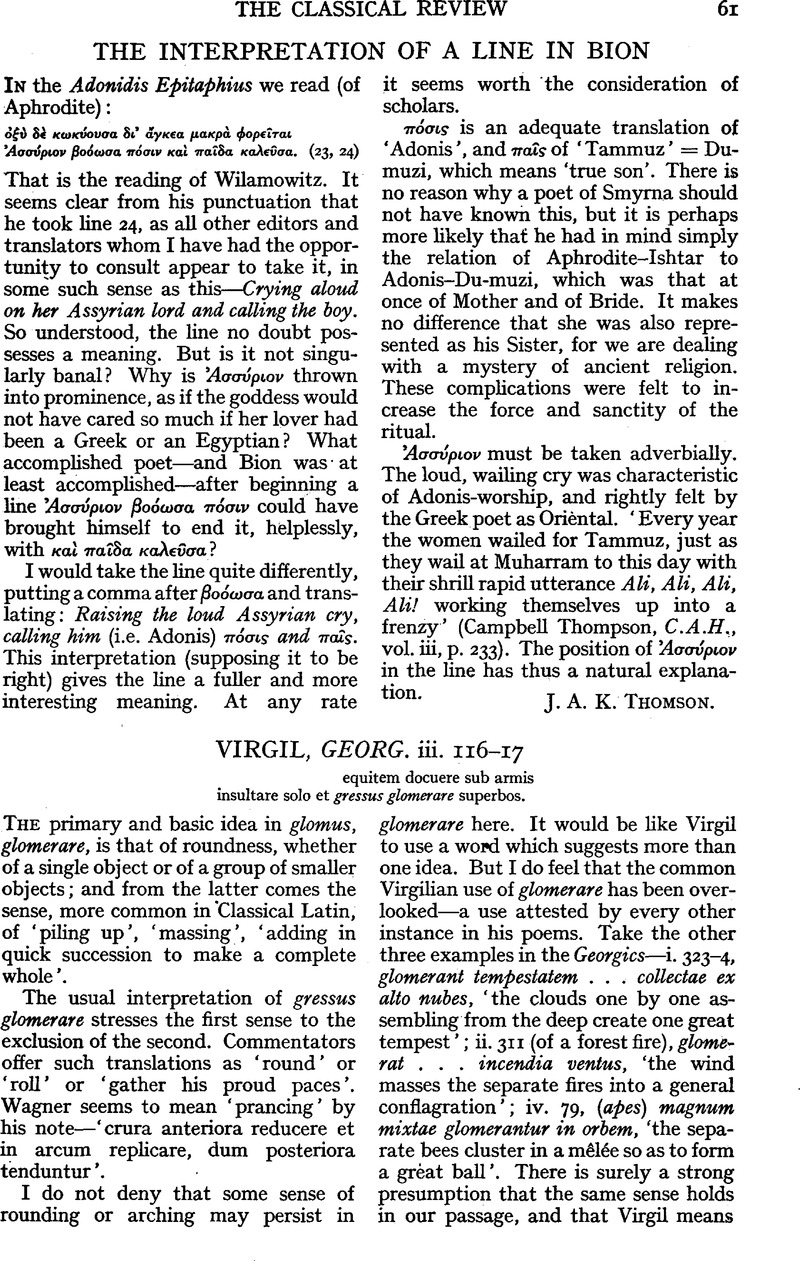Article contents
Virgil, Georg. iii. 116–17
Published online by Cambridge University Press: 27 October 2009
Abstract

- Type
- Review Article
- Information
- Copyright
- Copyright © The Classical Association 1946
References
page 62 note 1 Lucilius xiv. 23 (Mueller) means something similar by his ecu' gradarius. See Non. 17. 23, ‘Asturco gradarius equus est molli gradu et sine succussatura nitens.’ Hence Seneca, Ep. xl fin., in criticizing a galloping style of oratory as unsuited to Roman temperament, ‘Cicero quoque noster, a quo Romana eloquentia exstitit, gradarius fuit.’
page 62 note 2 colligere ungues is simply the counterpart of vestigia figere or ponere: it has no special sense of ‘prancing’. It must not be confused with gradum colligere (Sil. Ital. vi. 399 and vii. 695), which means ‘to check one's stride’, ‘to draw back’.
page 62 note 3 cursus, the reading of P, is to be preferred to fluctus, that of E K Q. To accept fluctus, as the Thesaurus does, is to ignore the history of glomerare in this context. I daresay glomerare fluctus is a possible phrase by itself. It could refer to the waves the horses drove in front of them. But detent pedum vestigia cauda requires a prior cursus: otherwise the witticism, which Statius intended as the finale of his conceit, is left unattached and pointless.
Incidentally, cursus is plural because the two horses have each their separate cursus. Silius in x. 461, referring to one horse, has rapidum glonterans cursum.
page 63 note 1 Gesner, the best of Claudian's editors, is so puzzled that he says: ‘quomodo cavernae glomerari possint, et quid omnino hoc significet glomerare cavernas, cum non assequar, valde placet lectio Cujaciana procellas.’ But this is a poor makeshift. And as for caminos, Birt's suggestion in M.G.H., it was scarcely worth printing, even with his apologetic dubitanter.
- 1
- Cited by


